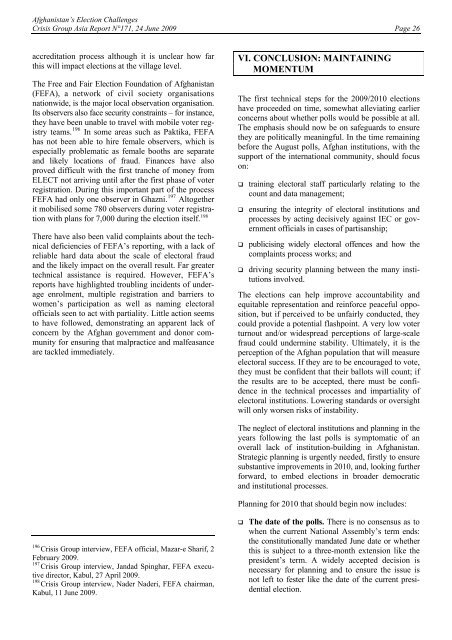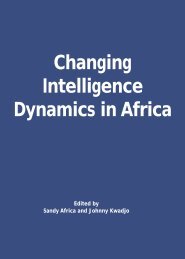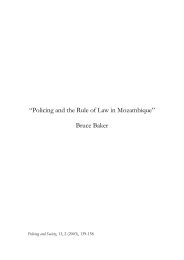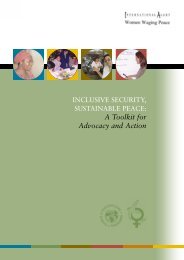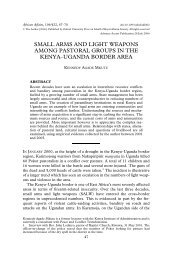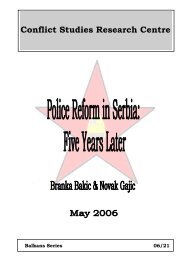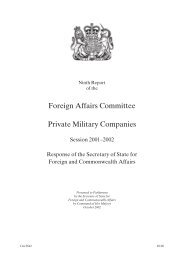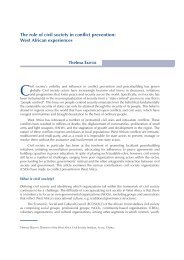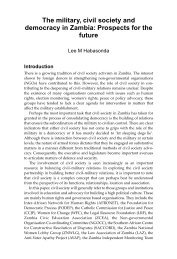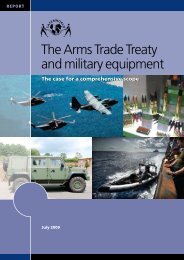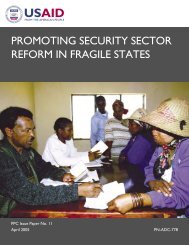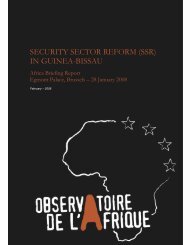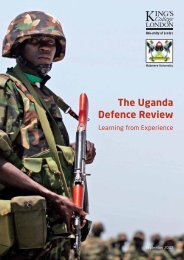AFGHANISTAN'S ELECTION CHALLENGES
AFGHANISTAN'S ELECTION CHALLENGES
AFGHANISTAN'S ELECTION CHALLENGES
Create successful ePaper yourself
Turn your PDF publications into a flip-book with our unique Google optimized e-Paper software.
Afghanistan’s Election Challenges<br />
Crisis Group Asia Report N°171, 24 June 2009 Page 26<br />
accreditation process although it is unclear how far<br />
this will impact elections at the village level.<br />
The Free and Fair Election Foundation of Afghanistan<br />
(FEFA), a network of civil society organisations<br />
nationwide, is the major local observation organisation.<br />
Its observers also face security constraints – for instance,<br />
they have been unable to travel with mobile voter registry<br />
teams. 196 In some areas such as Paktika, FEFA<br />
has not been able to hire female observers, which is<br />
especially problematic as female booths are separate<br />
and likely locations of fraud. Finances have also<br />
proved difficult with the first tranche of money from<br />
ELECT not arriving until after the first phase of voter<br />
registration. During this important part of the process<br />
FEFA had only one observer in Ghazni. 197 Altogether<br />
it mobilised some 780 observers during voter registration<br />
with plans for 7,000 during the election itself. 198<br />
There have also been valid complaints about the technical<br />
deficiencies of FEFA’s reporting, with a lack of<br />
reliable hard data about the scale of electoral fraud<br />
and the likely impact on the overall result. Far greater<br />
technical assistance is required. However, FEFA’s<br />
reports have highlighted troubling incidents of underage<br />
enrolment, multiple registration and barriers to<br />
women’s participation as well as naming electoral<br />
officials seen to act with partiality. Little action seems<br />
to have followed, demonstrating an apparent lack of<br />
concern by the Afghan government and donor community<br />
for ensuring that malpractice and malfeasance<br />
are tackled immediately.<br />
VI. 5CONCLUSION: MAINTAINING<br />
MOMENTUM<br />
The first technical steps for the 2009/2010 elections<br />
have proceeded on time, somewhat alleviating earlier<br />
concerns about whether polls would be possible at all.<br />
The emphasis should now be on safeguards to ensure<br />
they are politically meaningful. In the time remaining<br />
before the August polls, Afghan institutions, with the<br />
support of the international community, should focus<br />
on:<br />
training electoral staff particularly relating to the<br />
count and data management;<br />
ensuring the integrity of electoral institutions and<br />
processes by acting decisively against IEC or government<br />
officials in cases of partisanship;<br />
publicising widely electoral offences and how the<br />
complaints process works; and<br />
driving security planning between the many institutions<br />
involved.<br />
The elections can help improve accountability and<br />
equitable representation and reinforce peaceful opposition,<br />
but if perceived to be unfairly conducted, they<br />
could provide a potential flashpoint. A very low voter<br />
turnout and/or widespread perceptions of large-scale<br />
fraud could undermine stability. Ultimately, it is the<br />
perception of the Afghan population that will measure<br />
electoral success. If they are to be encouraged to vote,<br />
they must be confident that their ballots will count; if<br />
the results are to be accepted, there must be confidence<br />
in the technical processes and impartiality of<br />
electoral institutions. Lowering standards or oversight<br />
will only worsen risks of instability.<br />
The neglect of electoral institutions and planning in the<br />
years following the last polls is symptomatic of an<br />
overall lack of institution-building in Afghanistan.<br />
Strategic planning is urgently needed, firstly to ensure<br />
substantive improvements in 2010, and, looking further<br />
forward, to embed elections in broader democratic<br />
and institutional processes.<br />
Planning for 2010 that should begin now includes:<br />
196 Crisis Group interview, FEFA official, Mazar-e Sharif, 2<br />
February 2009.<br />
197 Crisis Group interview, Jandad Spinghar, FEFA executive<br />
director, Kabul, 27 April 2009.<br />
198 Crisis Group interview, Nader Naderi, FEFA chairman,<br />
Kabul, 11 June 2009.<br />
The date of the polls. There is no consensus as to<br />
when the current National Assembly’s term ends:<br />
the constitutionally mandated June date or whether<br />
this is subject to a three-month extension like the<br />
president’s term. A widely accepted decision is<br />
necessary for planning and to ensure the issue is<br />
not left to fester like the date of the current presidential<br />
election.


